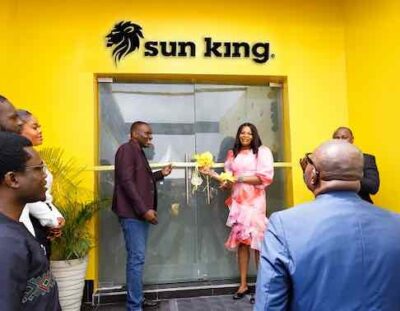
Battery Buyer’s Guide — Prices Have Collapsed
There’s a quiet revolution rumbling beneath the surface of the global energy market — and no, it’s not just the hum of your neighbour’s Tesla Powerwall on a sunny day. It’s the plummeting price of off-grid batteries, triggered not by some technological breakthrough or eco-angelic alignment of incentives, but by a good old-fashioned geopolitical pile-up: China’s battery dumping spree.
Yes, in a move that would make a Bond villain blush, Chinese battery manufacturers — faced with tariffs and trade walls from the US and EU — are offloading lithium-iron phosphate (LFP) batteries onto the global market. The result? Off-grid battery prices are falling faster than a politician’s promises after election day.
And for off-gridders, back garden solar tinkerers, rural dwellers, vanlifers, homesteaders, and the “grid-curious,” this is an unexpectedly golden hour.
A Power Glut
To understand what’s happening, peek behind the geopolitical curtain. As the US and EU slap tariffs on Chinese EVs and battery exports in an effort to protect domestic industry (or, more cynically, delay the inevitable), Chinese manufacturers — now sitting on millions of surplus battery cells — have turned their gaze to less regulated, less protected markets.
In practical terms, this means you can now buy a high-quality, long-lifespan, 48V 100Ah LFP battery — the kind that used to set you back over $1,000 — for closer to $300–$400. That’s not a typo. That’s a seismic shift.
These aren’t shady knock-offs either. Many come from the same production lines supplying major electric vehicle makers. We’re talking about B-grade cells with A+ performance, packed into rack-mountable boxes with Bluetooth, smart BMS, and the smug satisfaction of sticking it to Big Utility. You can use the batteries to time-shift your electricity consumption, butyng at night when prices are cheap and using the energy during the day. Plus you have the satisfaction of being prepared for the (almost inevitable) power cut.
The Grid Is Nervous — And It Should Be
This price collapse is a backhanded gift for those of us dreaming of energy independence. Suddenly, a reliable home battery bank — once the domain of the well-heeled prepper or early-adopting tech bro — is within reach of the average household. And that, frankly, scares the grid.
Why? Because batteries are the final piece of the puzzle. Solar without storage is like a kettle without a thermos: brilliant at 1pm, useless at 1am. But cheap, modular, durable storage? That’s a paradigm shift. That’s people keeping their own power, controlling their own time of use, not calling the utility company during a blackout – because they didn’t notice.
Now, before you hop online and fill your shed with lithium bricks like you’re building the world’s first electric castle, remember: cheap doesn’t mean perfect. Safety standards, warranty support, and shipping risks still apply. Some sellers are brilliant; others sell you a battery and disappear like a blockchain startup.
But the …
